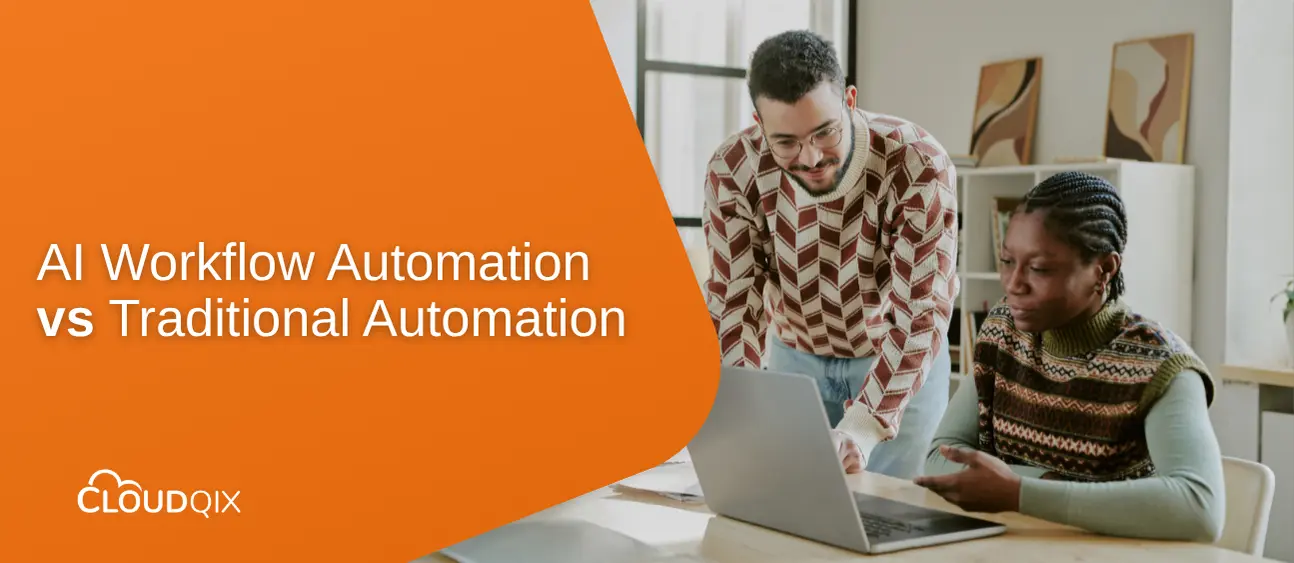Businesses of all sizes are looking for smarter ways to handle repetitive tasks. Enter AI workflow automation, a technology that doesn’t just follow instructions but learns, adapts, and makes decisions. Imagine the difference between a calculator and a digital assistant: one simply crunches numbers, while the other actually helps you interpret the results and suggest next steps.
Unlike traditional workflow automation, which relies on rule-based scripts, AI-powered workflows bring intelligence, adaptability, and the ability to process massive amounts of data. This shift promises a more intelligent use of data across your organization.
What is AI Workflow Automation?
AI workflow automation isn’t just about automating tasks; it’s about creating workflows that can think, learn, and improve over time. By leveraging machine learning and natural language processing, AI can recognize patterns, make predictions, and even assist in decision-making. This makes it particularly valuable for complex processes with variable inputs, personalized actions, or situations that require continuous adaptation.
Because AI workflows can learn from data, they adjust to unexpected scenarios, making your operations more resilient and efficient. In other words, AI helps your business work smarter, not just faster.
What is Traditional Workflow Automation?
On the other hand, traditional workflow automation focuses on stability and consistency. It excels at automating repetitive tasks that follow clear, predictable rules. By streamlining these processes, businesses can increase efficiency, reduce errors, save costs, and free employees to focus on more strategic work. While it lacks the adaptive intelligence of AI, traditional automation is reliable, scalable, and ideal for well-defined workflows.
When to Use AI vs Traditional Automation?
The choice often depends on the nature of the tasks you need done. Traditional automation works best for simple, repetitive processes. Think of invoice approvals, tasks that typically use manual data entry, routine data reporting, etc. AI workflow automation really shines in dynamic, data-rich environments. Environments like customer support triaging, predictive analytics, or complex decision-making tasks. Many businesses find that a combination of both approaches, using AI where adaptability is needed and traditional automation for predictable tasks, creates the most effective workflows.
Why AI Automation Is the Future
Understanding the differences between traditional workflow automation vs. AI is crucial for business owners. AI workflow automation offers better flexibility, intelligence and scalability compared to traditional methods. Its capacity to learn, adjust, and integrate across business systems makes it a powerful tool for improving efficiency.
CloudQix makes it easy to bring AI into your workflows without expensive updates to your tech stack. CloudQix helps you uncover automation opportunities and build smarter, more adaptive workflows.
Ready to experience the benefits of AI workflow automation? Sign up for CloudQix today!


